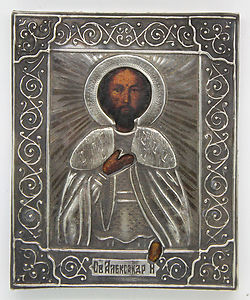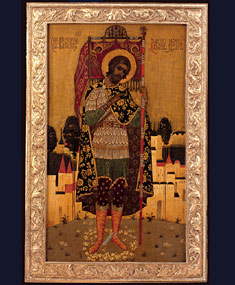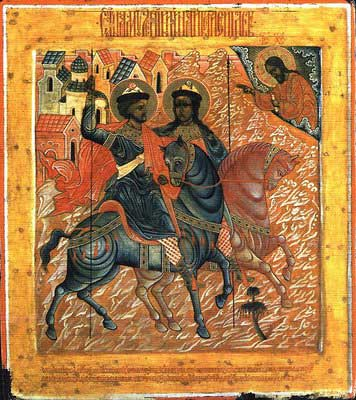Category Archives: Rastas
SESOSTRIS THE GREAT, THE EGYPTIAN HERCULES.
By Samuel David Ewing
Pg.225. “Eratosthenes ( ? ) ( From Syncellus ) App.II Fr. 39 King of Thebes 34. The thirty fourth King of Thebes was Sistosichermes, “Valiant Heracles,” ( Sistosis or Sesortosis, “Valiant Hermes or Heracles” ), for 55 years. Anno Mundi 3791.” From Manetho, With An English Translation By W.G. Waddell, published by Harvard University Press , London 1940, 1948.
Sesostris the Great’s name has been translated in various ways from the Greek, Roman, and English translations as Senusret I, Senwosret I, Sistosis, Sesortosis, Sesoothis, and Sen-Wos- Ret I. Sen-Wos-Ret means “son of Wosret.”
Wosret is the goddess who was known as a form of Hathor in Egypt. Wosret ruled over precious metals, wealth, mines, and treasures. The ancient black African ruler, Sen-Wos-Ret I knew Her to be his patron deity during his successful military campaigns, and she was the motivating ideal behind his mission to conquer the entire world.
With that in mind I will now list some of his accomplishments:
1. He used prisoners of war for an extensive building projects throughout Egypt.
2. He was worshiped as a living god during the 12th Dynasty of Egypt.
3. Sen-Wos- Ret I began a series of victorious military expeditions against the Asiatics, Libyans, and various nomads ( Bedouins ) who threatened the people of Egypt. He became ruler of Egypt in 1971 B.C. and ruled until 1928 B.C.
4. He enforced loyalty and discipline in Egypt, giving the governors responsibility for the management of the nomes ( towns ).
5. He was the first Egyptian king to rule over Ethiopia, including lower Nubia, and use its gold mines to add to the empires wealth.
6. Strabo, XVII reports that Sen-Wos-Ret I had built a canal starting from the Nile River to the Red Sea.
7. He ordered the rebuilding of the Temple of Amen at Ipet-sut ( Karnak ) in stone.
8. He erected red granite obelisks to be placed at Heliopolis ( Northern Anu ).
9. He led a great expedition to Punt on the Somali Coast.
10. He had built the largest pyramid in the history of the Middle Kingdom Period of Egypt’s history. The pyramid was 352 ft. tall.
11. He protected Egypt’s borders by winning victories in a succession of military conquests to the South to gain the benefits of the economic mechanisms in Lower Nubia and to continue trading with the nations of West Asia.
12. The ancient Greeks called him “Heracles Kharops” ( Heracles the Flashing-Eyed ), “Kekrops”, and “Sistosichermes Valiant Hercules.” He founded and built Athens, Greece, considered to be the greatest center of culture, academics, art, and the sciences in ancient Greece. This city is credited to being the catalyst for European – based civilization ( the West ) and originated with the black king Sen-Wos- Ret I known as Heracles Kharops.
13. He was the second ruler of the 12th Dynasty, he ruled for 34 years, and built 13 fortresses from Egypt to the Second Cataract. He made use of the harvest from Wadi Hammamat for food supplies.
14. He completed the construction of the Wall Of Princes. He founded colonies in the areas of the Danube River, the Black Sea, Strabo, Book III records that Sen-Wos- Ret I conquered Palestine, Syria, Mesopotamia, Armenia, Iberia, Colchis, and ancient Hindu writings record his invasion of India.
Numerous sources indicate that he was the first man to conquer the entire world centuries before Alexander the Great was born, that this has been a point of controversy among scholars and archaeologist, however evidence is being discovered that verifies the claims of ancient writers.
Message from Shashamane (Ethiopia) to Rastas of Japan
How much is Happiness….
Two Earthquakes reported in Eastern Canada…. No Damages….
European Descendants Carry Brunt of New (BAD) Gene Mutations: Study
CIA and the Death of Bob Marley

The following article originally appeared in the February 2002 issue of HIGH TIMES Magazine
Marley knew the drill – in Jamaica, at the height of his success, when music and politics were still one, before the fog of censorship rolled into the island, old wounds were opened by a wave of destabilization politics. Stories appeared in the local, regional and international press downsizing the achievements of the quasi-socialist Jamaican government under Prime Minister Michael Manley.
In the late 1970s, the island was flooded with cheap guns, heroin, cocaine, right-wing propaganda, death squad rule and, as Grenada’s Prime Minister Maurice Bishop described it three years later, the CIA’s “pernicious attempts [to] wreck the economy.”
The root problem of Africans and the Diaspora is Miseducation
The root of India’s problems – Miseducation
IronLion: Alexander Nevsky of Novgorod Muurish Prince of Russia
Black Kings of Kiev, Russia: Saint Boris and Gleb, Sons of Valdimyr and Martyrs of Russia
Boris and Gleb were sons of St. Vladimir, grand prince of Kiev, who was the first Christian ruler in Russia. They had two other brothers, Iaroslav (Yaroslav) and Sviatopolk (Yaropolk). When Vladimir died in 1015, Boris and Gleb were away. Boris, a military officer, was off with his troops fighting the Pechengs. Sviatopolk took over his father’s throne, but even though he gave money to the townsfolk, their loyalty lay with the more popular Boris. The advisers of Boris urged him to make his rightful claim to the throne, but he declined, saying he would not raise his hand against his brother. His troops left him and only his servants remained with him in Alta. Sviatopolk obtained the loyalty of the boyars, the ruling class, and instructed them to murder Boris. The assassins hastened to Alta, where they found Boris in prayer. He evidently knew they would come for him, and when he was done with vespers, he lay down on his couch and let them attack him with lances. In vain his faithful personal servant, a Hungarian named George, tried to shield him with his body. George was slain and was decapitated so that the assassins could steal the large gold necklace—a gift from Boris—that was around his neck. Boris survived. He was wrapped in canvas, loaded onto a wagon and taken back to Sviatopolk. His brother ordered him finished, and he was fatally stabbed in the heart with a sword. Sviatopolk then plotted to kill Gleb. He sent his brother a false message, telling him to come at once to Kiev because their father was gravely ill. But another brother, Iaroslav, warned Gleb and told him the truth about their father’s death and Boris’s murder. Gleb was unable to avoid murder. Sviatopolk’s assassins arrived and ordered the terrified servants to kill their master. Gleb’s cook seized a knife and stabbed him to death. Later, Iaroslav was able to transport the bodies of his two brothers to the Church of St. Basil in Vyshegorod. Miracles were reported at their tomb, which became a popular pilgrimage site.






 Boris and Gleb
Boris and Gleb